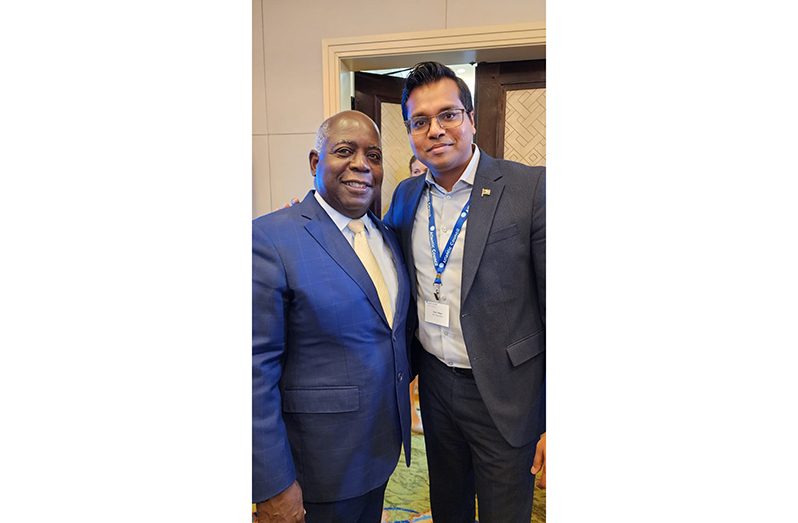ON the sidelines of USA Vice President Kamala Harris’ visit to the Bahamas, the PACC 2030 Climate Resilient Clean Energy Summit was held recently to address the climate crisis.
Dr. Rosh Khan took part as the private sector representative from Guyana. The Atlantic Council’s Caribbean Initiative at the Adrienne Arsht Latin America Center, in collaboration with RMI (founded as the Rocky Mountain Institute), hosted a one-day PACC 2030 Summit, to bring together companies from the US and Caribbean nations, local leaders, technical assistance experts, policy experts, academics, and government partners to discuss best practices in advancing climate resilient clean energy in the Caribbean, identify funding/technical assistance gaps that could be bridged through greater partnership, and exploring opportunities to further unleash the clean energy transition in the Caribbean while building greater climate resilience – dual objectives of PACC 2030.
In his role as a Guyanese representative, Dr. Khan collaborated with significant stakeholders in the US and Caribbean, policymakers, and international leaders, highlighting Guyana’s engagement in the global climate change conversation.
He outlined key points of Guyana’s Low Carbon Development Strategy 2030 to combat climate change and lead one of the world’s most ambitious energy transitions while growing the economy.
He said, “Guyana stands at a pivotal junction, balancing our natural wealth with the responsibility to preserve and protect it. We are committed to the path of sustainable growth, and the PACC 2030 Summit has provided an invaluable platform to share our efforts and learn from global counterparts.”
Khan continued: “H.E. Dr. Mohamed Irfaan Ali has led the charge, with Guyana listed as the first country ever to complete the ART process for carbon credits. The agreement will generate a minimum of US$750 million for Guyana over the coming decade and represents a major milestone on the journey towards a vision first set out in 2007. On its own, the agreement will see approximately 157 Billion Guyana dollars invested in low carbon development across the country, with 31.5 Billion of this allocated to village-led development plans.”



.jpg)








